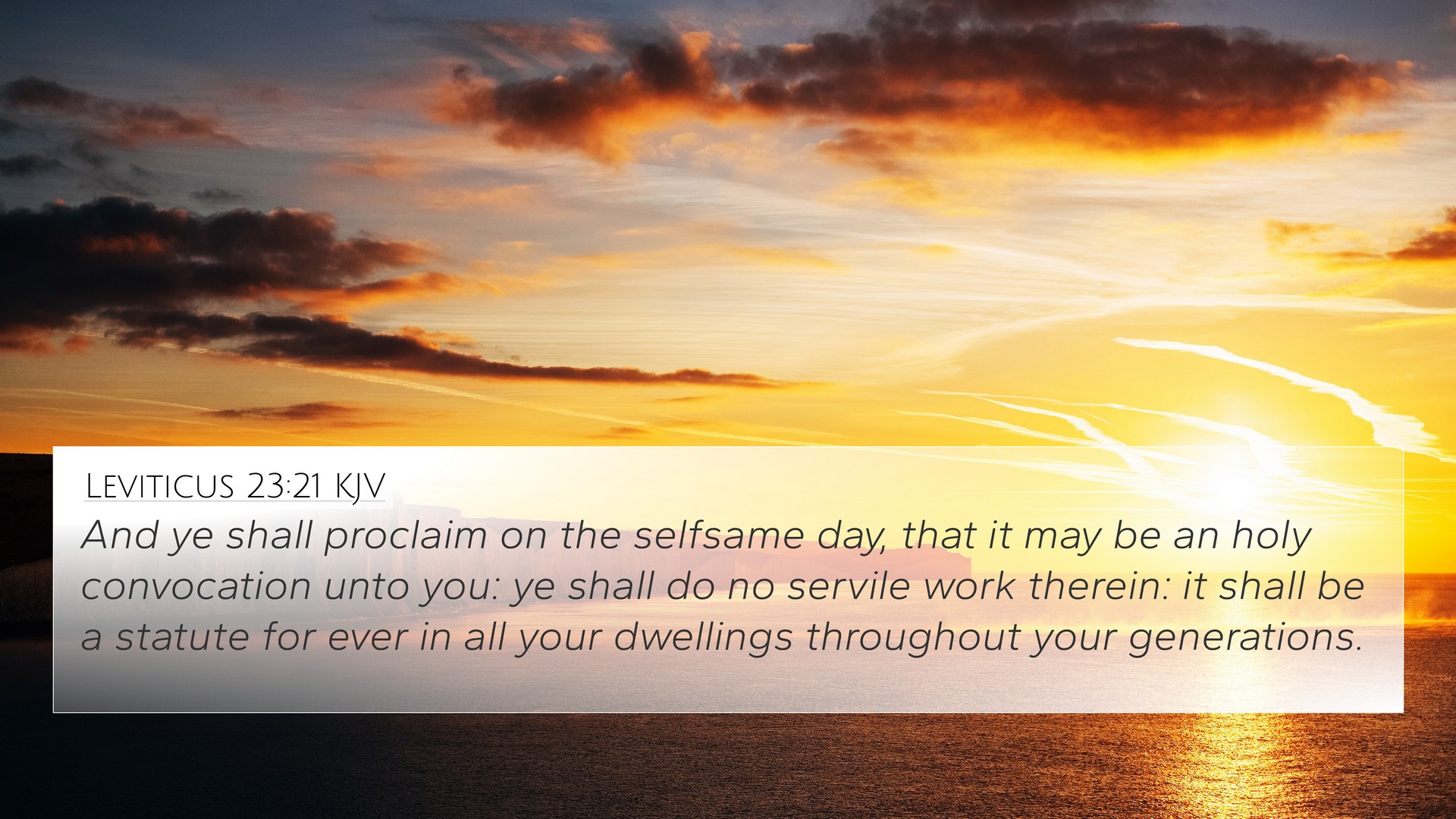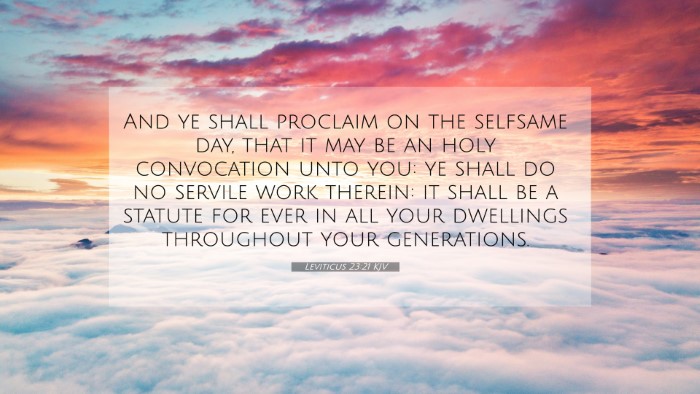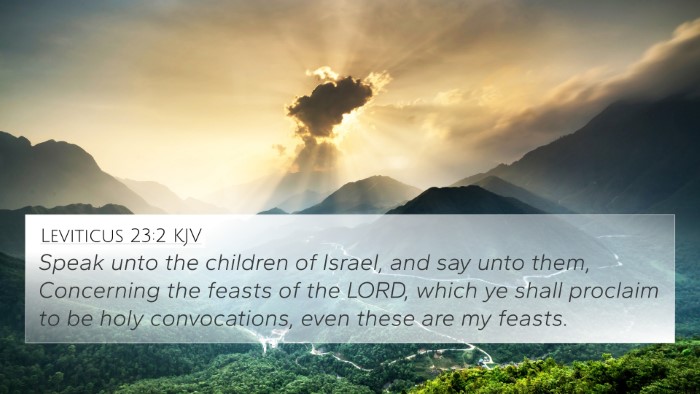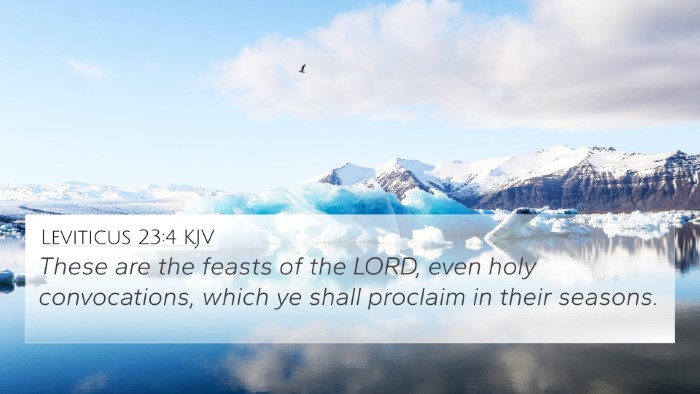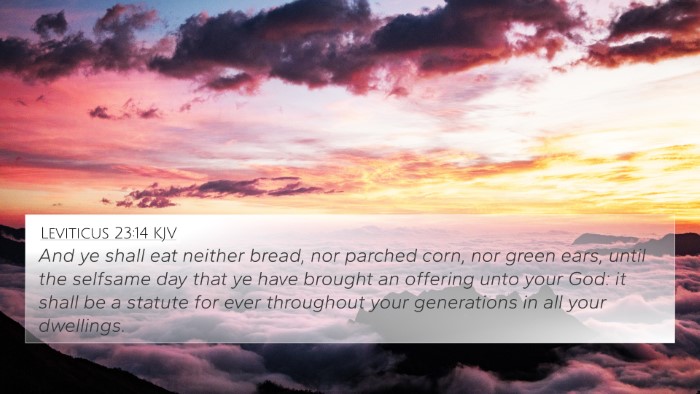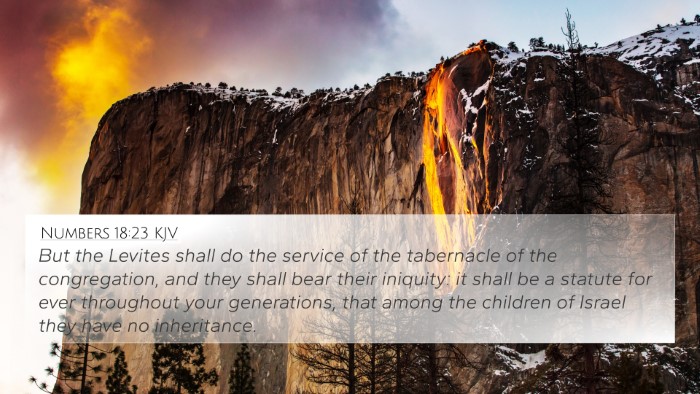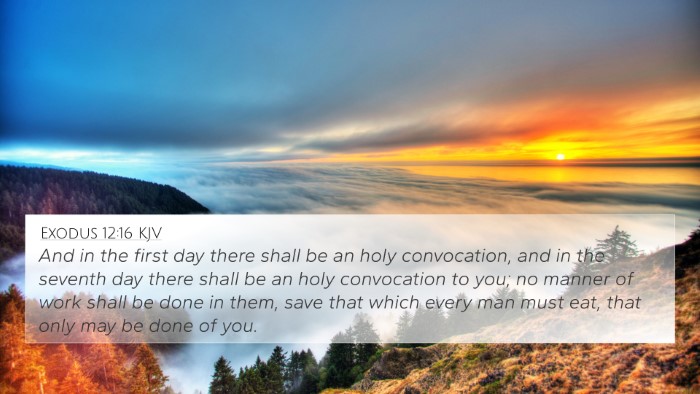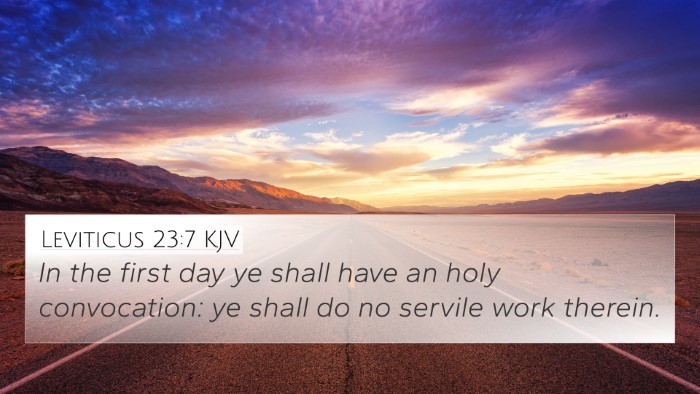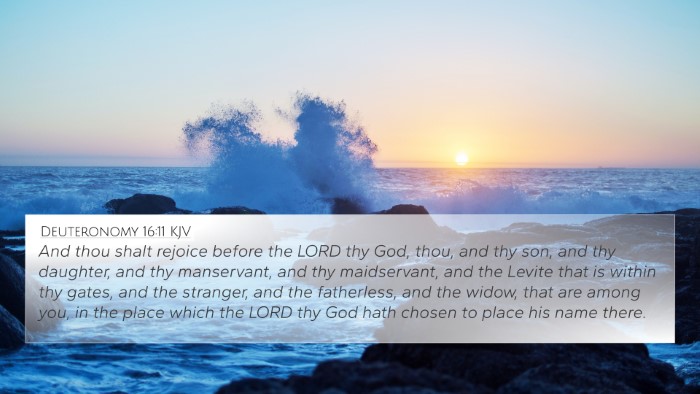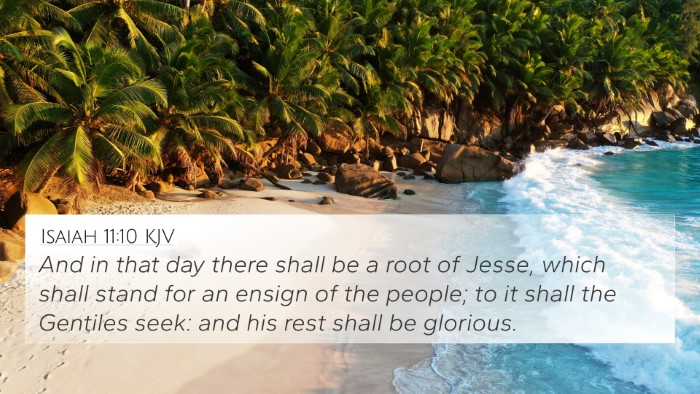Understanding Leviticus 23:21
Bible Verse: Leviticus 23:21 - "And you shall proclaim on the same day that it is a holy convocation. You shall do no customary work on it. It shall be a statute forever in all your dwellings throughout your generations."
Summary of Meaning
This verse outlines the significance of the Feast of Weeks (Shavuot) in Israel, highlighting its communal aspect and the importance of rest on this holy occasion. It underscores the need for believers to gather and celebrate God's blessings, reinforcing their covenant relationship with Him.
Insights from Public Domain Commentaries
Matthew Henry's Commentary
Matthew Henry emphasizes the necessity of holiness in the observance of sacred feasts. He notes that the holy convocation is not just about rest but a time of assembly where the people acknowledge God's continual provision and mercy. Henry highlights the importance of this festival in remembering the Law and the giving of the first fruits.
Albert Barnes' Notes
Albert Barnes points out that the Feast of Weeks is a time for celebration and gratitude for the harvest. He explains that this holy convocation serves as a reminder of Israel’s dependence on God for sustenance and blessings. Barnes encourages the understanding that this statute was binding and recognized throughout generations, signifying its importance in Israel's worship and agricultural cycles.
Adam Clarke's Commentary
Adam Clarke provides detailed insights into the significance of the festival itself, relating it to both agricultural and spiritual aspects of life. He discusses the meaning of the term "convocation" and illustrates how this gathering is a symbol of unity among God’s people. Clarke also reminds readers that such observances are not merely rituals but acts of honoring God within the community.
Cross References
Leviticus 23:21 connects with several other scriptures that reinforce its themes:
- Exodus 34:22: Discusses the Feast of Weeks as a time to celebrate the harvest.
- Deuteronomy 16:9-10: Explains the counting of weeks leading up to the feast.
- Acts 2:1: The outpouring of the Holy Spirit on Pentecost, which links the New Testament experience with the Feast of Weeks.
- Hebrews 10:24-25: Encouragement in gathering for worship and fellowship, paralleling the idea of the convocation.
- 1 Corinthians 5:7-8: Discusses Christ as our Passover and the call to keep the feast with sincerity and truth.
- Exodus 23:16: Further elaboration on celebrating the Feast of Harvest.
- Colossians 2:16-17: Points out how these feasts are shadows of things to come, fulfilled in Christ.
Thematic Bible Verse Connections
The themes found in Leviticus 23:21 resonate in various parts of scripture, illustrating the continuity of God's plan for His people:
- Celebration of God’s Provision: Psalm 67 reflects a desire for God to bless and the nations to rejoice.
- Community and Fellowship: Hebrews 10:25 emphasizes not neglecting to meet together, akin to the assembly required during feast days.
- Obedience to God’s Commands: John 15:10 connects obedience to love and the blessings that follow.
- Harvest Imagery: Matthew 9:37-38 refers to the harvest as plentiful, calling for laborers, paralleling the spiritual harvest celebrated during the feast.
- The Cycle of Faithfulness: Revelation 22:2 depicts the heavenly culmination of God’s blessings with the imagery of continual harvest.
Conclusion
Leviticus 23:21 serves as a profound reminder of the importance of joyful worship, communal gathering, and the acknowledgment of God’s provision. Through cross-referencing with other biblical texts, we can better understand the depth of its meaning and its place within the larger narrative of scripture. This verse not only links to historical practices but also finds relevance in the hearts of believers today as they gather to worship and celebrate the blessings of God.
